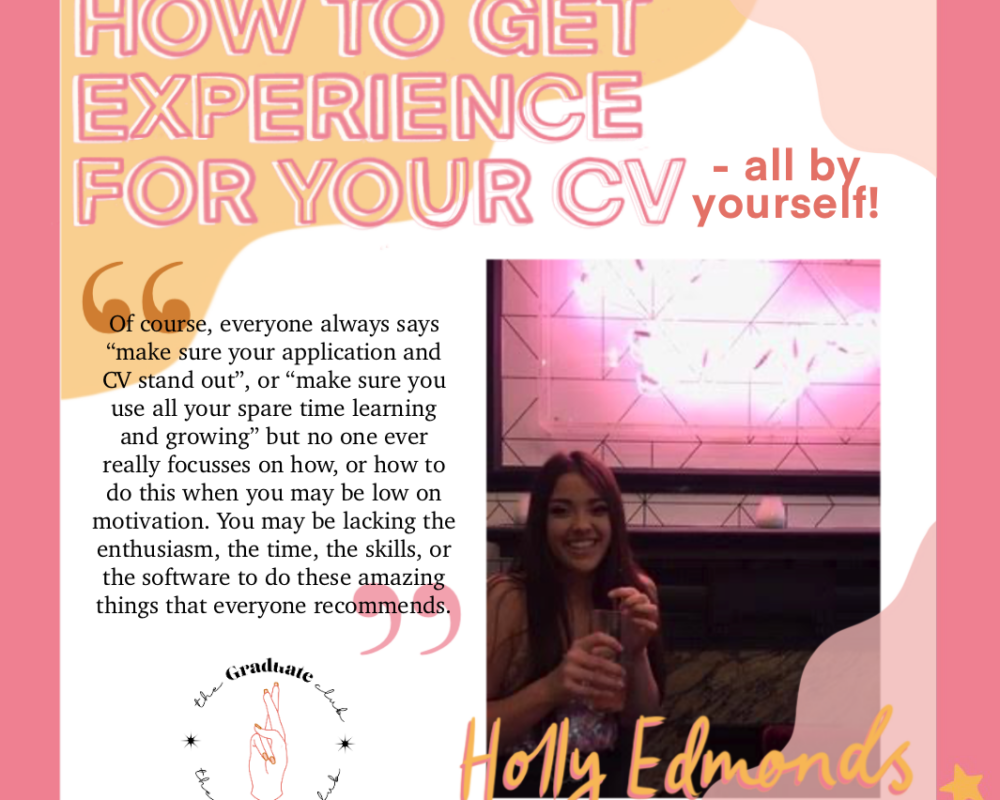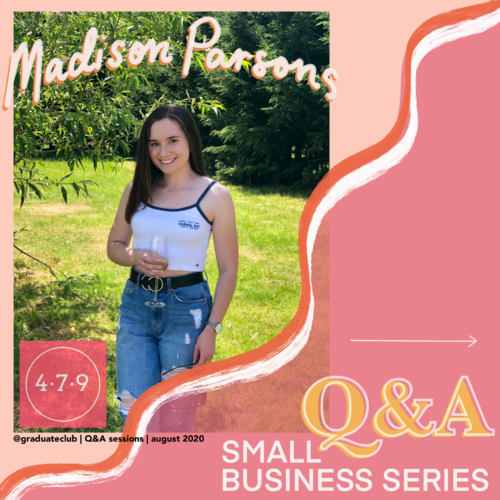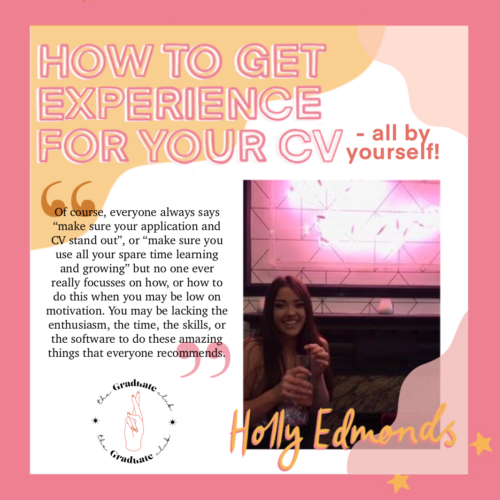“We are welcoming graduates to apply, 3-5 years experience is essential”
Great.
After graduating in 2019, I began my, what felt like, never-ending search for a job. From August-October, I non-stop applied for whatever marketing/media/communications job I could find, and hoped for the best, despite absolutely zero experience or knowledge of marketing what-so-ever! Somehow, I bagged a marketing job in a large, well-known hotel chain – result!
Not.
I hated every second of the job and the culture, and in 2 weeks…I quit.
That was it, I deemed myself as one huge failure and questioned why I ever went to University in the first place. From then on, I changed my tactic of non-stop applying for whatever marketing/media/communications job I could find, to non-stop applying for any office admin/customer service/office assistant job I could find.
“3-5 years experience of office admin is essential”
Great, again.
So that was it, after around 5 solid months of employers not even considering me for roles, and my CV being ignored, I’d had enough of typing application after application after application!
I had already tried endlessly to get experience in my chosen field (by applying for unpaid roles, and volunteering myself to companies for free), but had failed miserably. So, I decided to make some experience myself. Of course, everyone always says “make sure your application and CV stand out”, or “make sure you use all your spare time learning and growing” but no one ever really focusses on how, or how to do this when you may be low on motivation. You may be lacking the enthusiasm, the time, the skills, or the software to do these amazing things that everyone recommends. But here’s how I used my time and creativity to get a marketing role (no cost or relying on experience/hard to get placements is involved!!):
- Don’t tell the employer your skills – show them. I did this by making my own portfolio website. By using the free version of WordPress, you can make your own website by following a theme. There are tonnes of YouTube tutorials to help you set one up if you’ve never done this before! Of course, this doesn’t have to relate to one particular media-type role – whether you are looking for a photography role, a business role, or a role in the criminology sector – a portfolio website can direct an employer to much more information about you than a CV can give! Put anything relevant that you have done/created/written on your website – the more experience you show off the better. Linking this on your CV may be the one thing that makes you stand out from the rest!
- Be professional – In your contact with employers make sure you remain professional but friendly. There are tonnes of free templates online to make yourself an email signature that can make you look extremely organised and can link to your LinkedIn or website if you make one! “Sent from my iPhone” isn’t the best look.
- Be creative – Whether the role you are going for is creative or not, creativity will always catch people’s eyes! I used Canva.com which is completely free to make myself a logo and graphics for my website (and you don’t need to be good at graphic design!). Adding these to your CV can make it eye-catching and make you more memorable than other candidates.
- Keep in contact – Follow up emails, catch-up calls, thanking them for their time – do it all! My current employer told me that my follow up email after my second interview played a big part in my favour against other candidates who didn’t do the same. It only takes a few minutes, but could be what gets you through!
- Utilise free online courses – Some may sound boring or long, but this will make you appear proactive and hands-on. For marketing, the Google Digital Garage certificate is one of the best free ones available, and HubSpot is also a good shout. If you want something to show off, free ‘certification’ courses will give you a fancy certificate at the end, that you can post on your LinkedIn or website, showing potential employers that you are productive!
Once you’ve created a website, designed some graphics, completed some courses, or whatever is relevant to your field – you’ve all of a sudden got quite a list of tasks that can act as experience to put on your CV! This acts a lot better than an ordinary, plain CV with a degree and a part-time retail role as its main feature. My biggest piece of advice however; don’t give up. The graduate job for you is out there somewhere, you just haven’t found it yet.





Leave a Comment